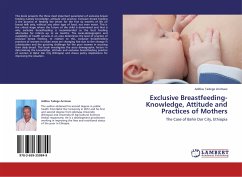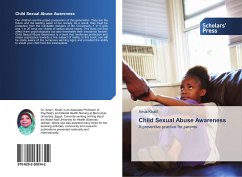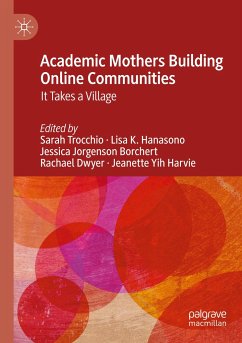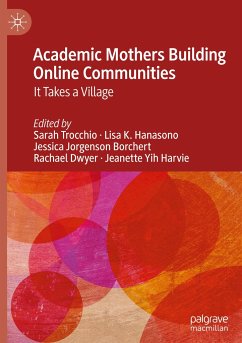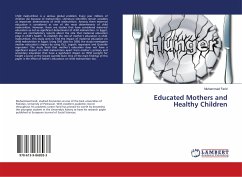
Educated Mothers and Healthy Children
Versandkostenfrei!
Versandfertig in 6-10 Tagen
27,99 €
inkl. MwSt.

PAYBACK Punkte
14 °P sammeln!
Child malnutrition is a serious global problem. Every year millions of children die because of malnutrition. Literature identifies certain variables as important determinants of child malnutrition. Among them maternal education is considered as one of the most determinants of child malnutrition. However, there are studies that have considered maternal education as not-so significant determinant of child malnutrition. In Egypt, there are contradictory reports about the role that maternal education plays in child's health. To establish the role of mother's education in child malnutrition, this s...
Child malnutrition is a serious global problem. Every year millions of children die because of malnutrition. Literature identifies certain variables as important determinants of child malnutrition. Among them maternal education is considered as one of the most determinants of child malnutrition. However, there are studies that have considered maternal education as not-so significant determinant of child malnutrition. In Egypt, there are contradictory reports about the role that maternal education plays in child's health. To establish the role of mother's education in child malnutrition, this study aims to find the impact of maternal education on child malnutrition in Egypt. Using DHS data for 2008, the study investigates mother education's impact by using OLS, Logistic regression and Quantile regression. The study finds that mother's education does not have a significant impact on child malnutrition apart from mother's primary and secondary education that have a significant impact on WHZ (weight for height z-score) at the lowest quintile level. One of the main findings of this paper is the effect of father's education on child malnutrition too.



